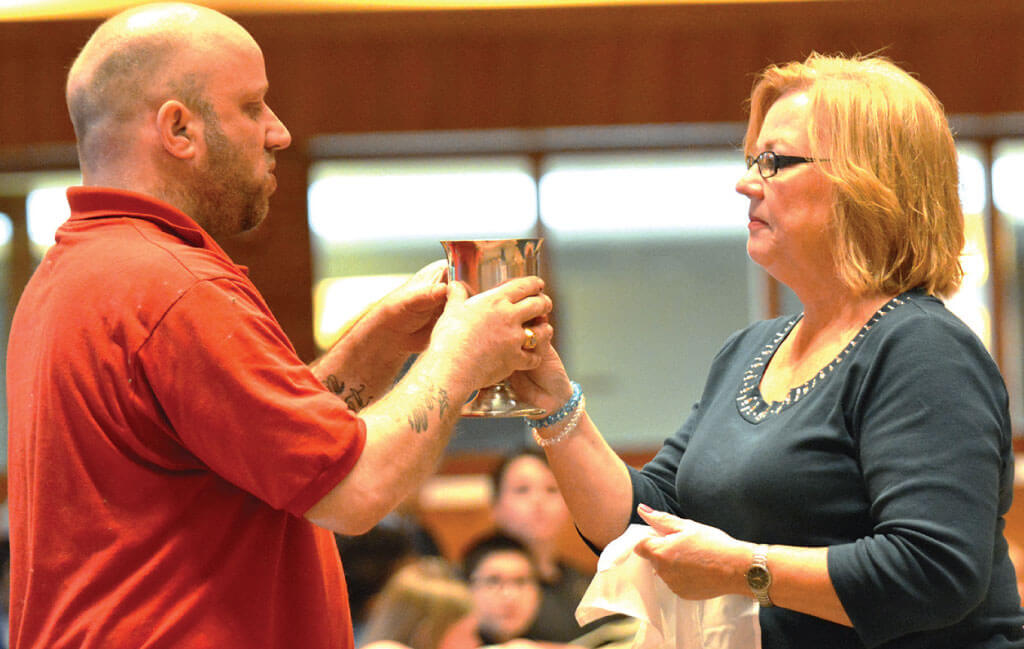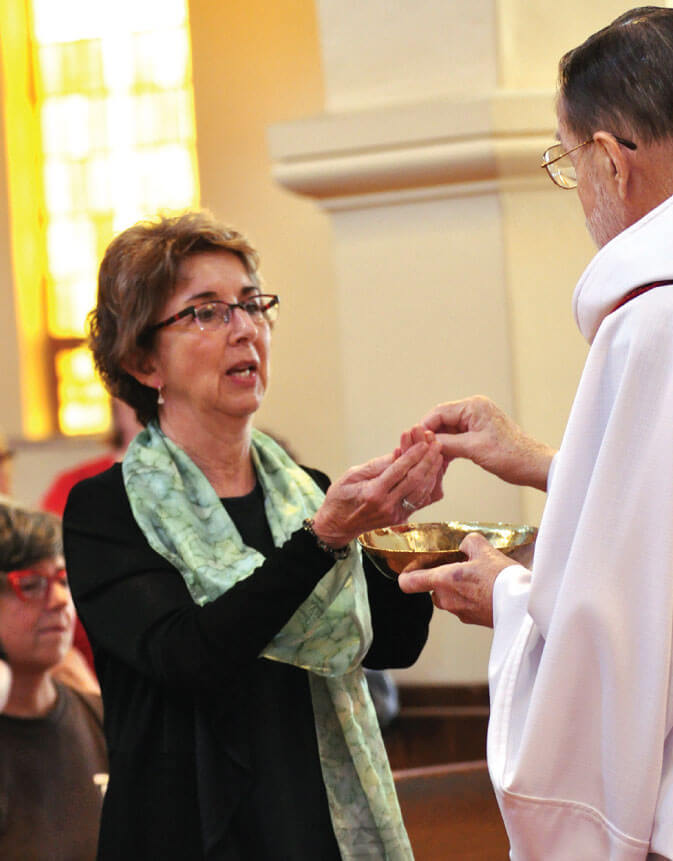
Many parishes in past years and many still celebrate this feast with outdoor processions. In college we scattered rose and peony petals on the ground ahead of the priest carrying the Eucharist in a monstrance from one outdoor altar bedecked with flowers to another. At each altar the priest blessed the people with the monstrance.
The celebrations were richly sacramental, people to see, flowers to smell, music to hear, and back in the Church bread to taste and eat that had become the Body of Christ. The bread broken and shared becomes the sacrament of Jesus’ wholehearted love poured out for us even unto death. This is a sign with the power to transform us into Christ.
When we gather at every Eucharist, we remember Jesus’ giving his whole self for us. We find strength and courage to try this kind of self-giving ourselves. We gather again and again, so that we become more and more like him. We gather in pain and in delight. We pour out our lives as Jesus did. We put our lives on the altar with his.
Like the sacrament itself, we become Jesus’ real presence in our world. We become what we receive.
- How does celebrating Eucharist nourish you?
- How have you become what you receive?

In Sunday’s gospel Jesus takes familiar, visible food (bread and fish) and blesses it, acknowledging this food is a gift of God. He breaks the bread and gives it to the crowd that has listened to his teaching. Jesus’ actions — take, bless, break, and give — outline what happens whenever Christians celebrate Eucharist.
Amazingly, Jesus’ disciples gather 12 baskets of leftovers, more food than the bread and fish with which they started. Even when all have eaten and had their fill, abundance remains. Jesus has more to give than humans are capable of receiving.
The 12 baskets of leftovers symbolize a fullness, enough for all always, including enough for us in our time. Jesus Christ reveals God’s graciousness. His body and blood will feed all those who hunger and thirst always.
When shared, the food Jesus gives multiplies, just as love and forgiveness do. Jesus’ teaching nourishes. We hear and make his word our own in living it. We become what we eat in sharing the bread that becomes the body of Christ at Eucharist. The body and the self-giving love it signifies multiply. Both hearing Jesus’ teaching and sharing bread involve communion, an intimate sharing in which love and commitment multiply.
At the beginning of Sunday’s gospel, Jesus urges his disciples to give the crowd something to eat themselves. This is our call, too, to hand on what we become in the Eucharist — nourishment in abundance for all.
- How does Eucharist lead you to become nourishment for others?
The reforms of the Second Vatican Council call the baptized to participate fully in the Lord’s Supper as an action of priest and people together. The people of God bring the gifts to the altar. We pray the Prayers of the Faithful together. We face the celebrant and respond in dialogue prayers. We exchange a sign of peace. People serve as lectors and Eucharistic ministers.
Eucharist is a communal liturgical action, in which we experience communion as the Body of Christ. Our celebration expresses hope that all may be one and spurs us to action for transforming the world.
At Eucharist Christ is present in the assembly, the Word, the priest, and the bread and wine. As the Second Vatican Council envisioned, “The liturgy daily builds up those who are in the Church, making them a holy Temple of the Lord, a dwelling place for God in the Spirit, to the mature measure of the fullness of Christ” (Constitution on the Sacred Liturgy, #5).
- How are you participating in the transformation of the world in Christ?
- What do you find it always right and just to be thankful for at Eucharist?
